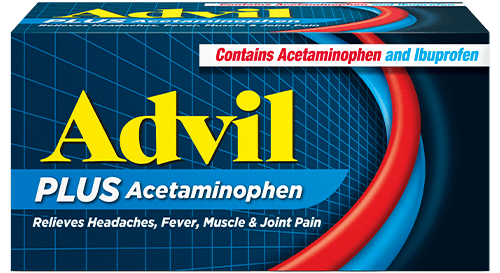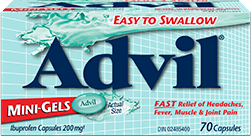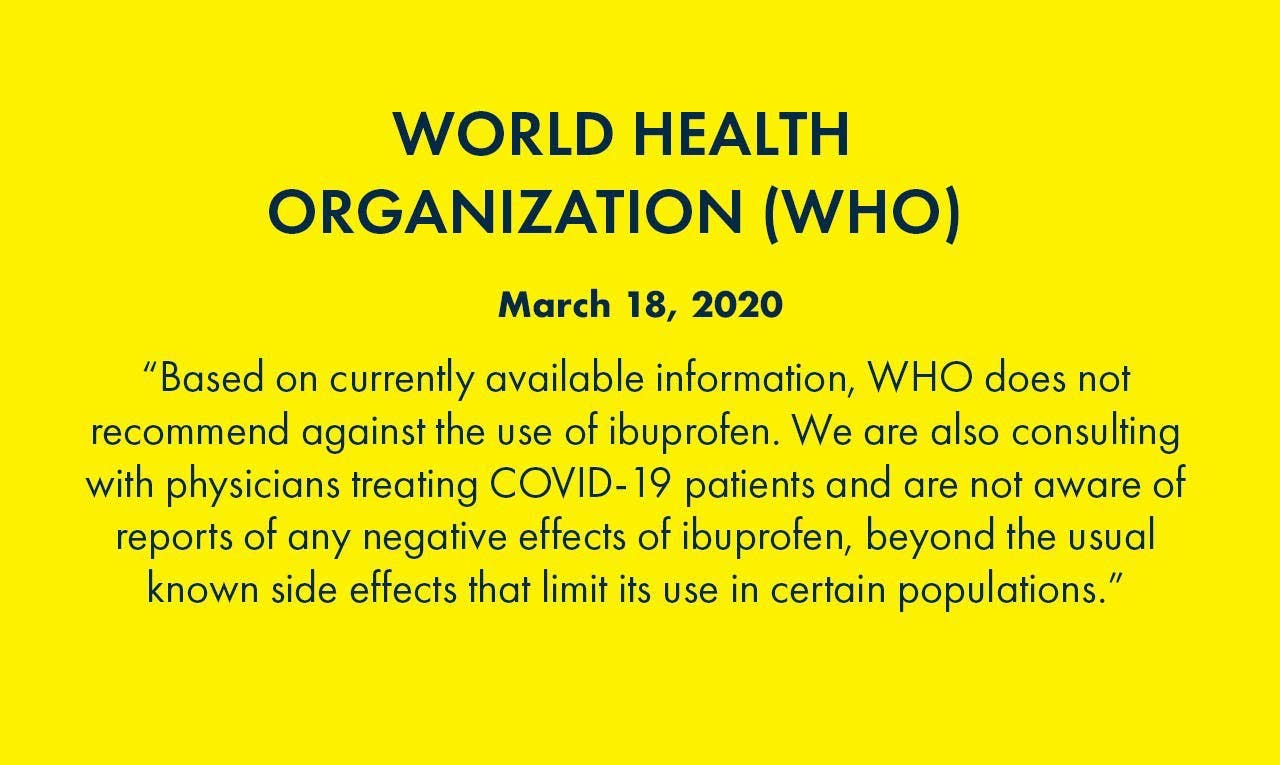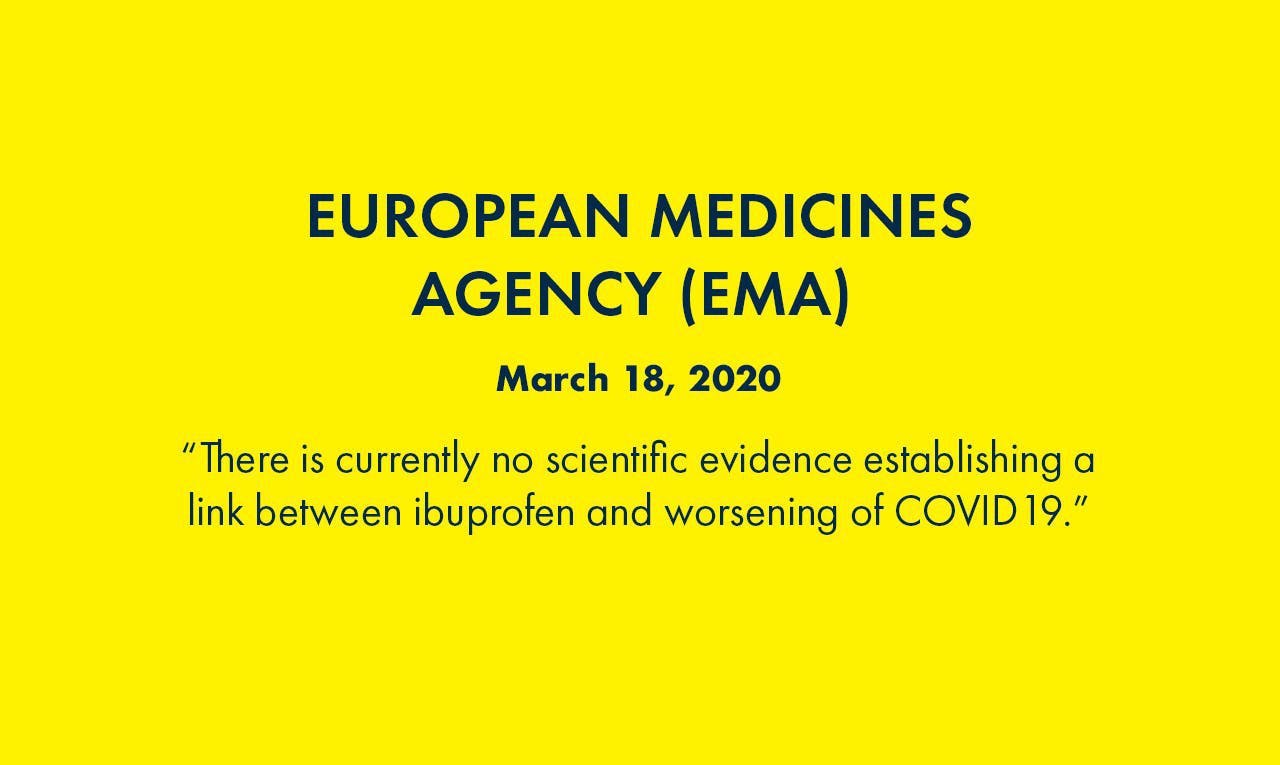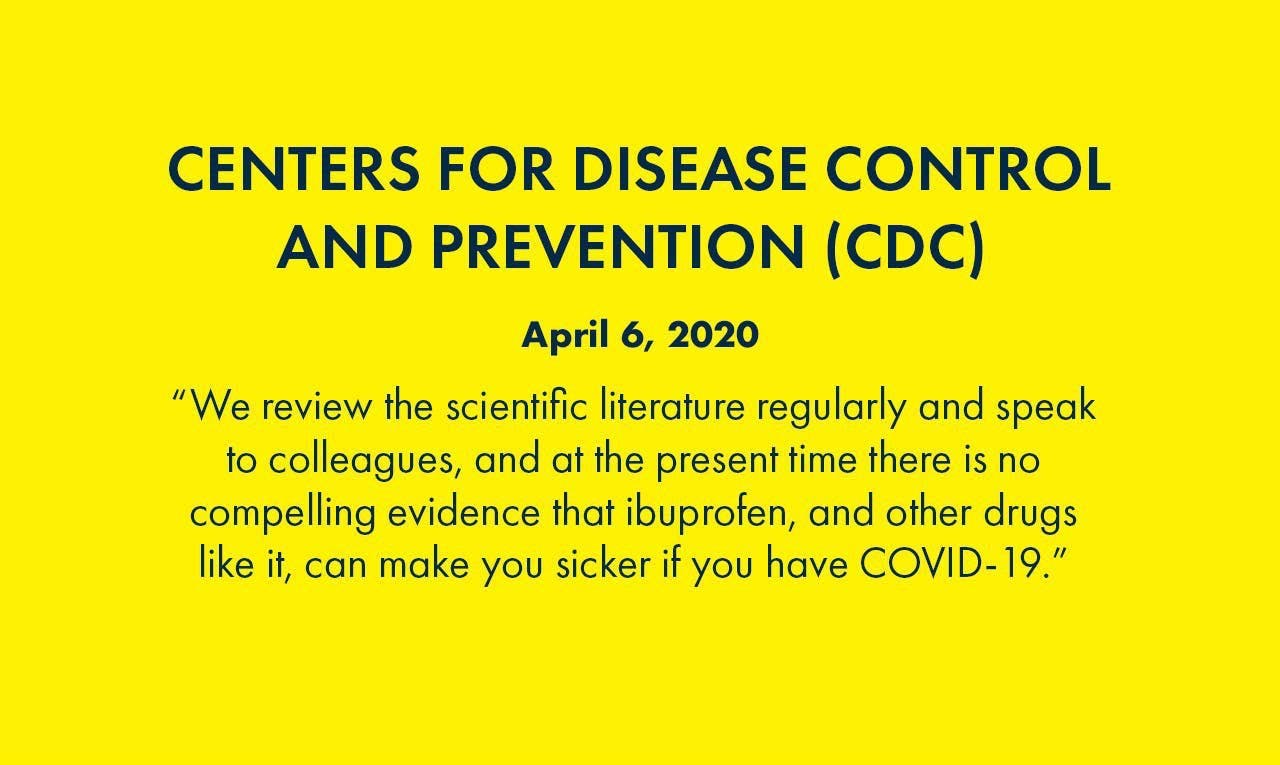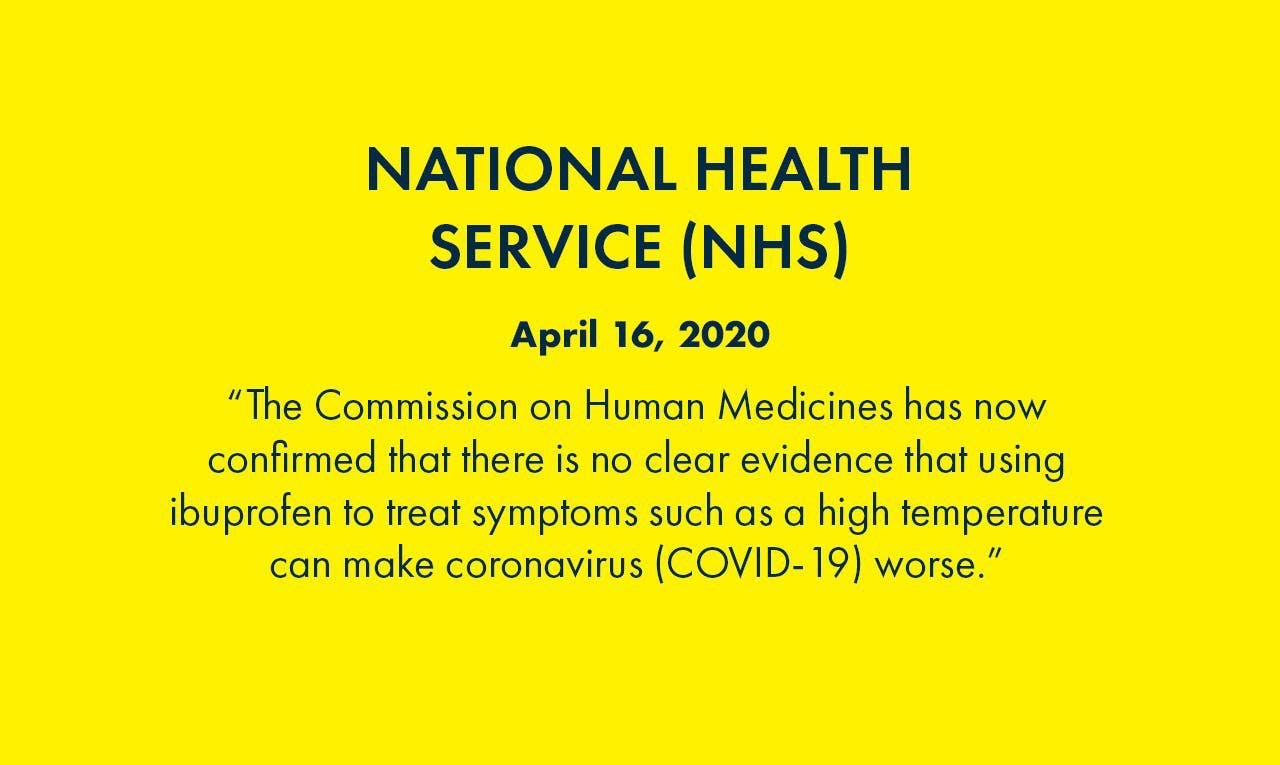Questions about COVID-19 Vaccines
Information about Advil and Covid-19
Health Authorities Agree: Advil can be used to relieve pain and reduce fever caused by Covid-19*.
Haleon is here to help you and your family. Ibuprofen/Advil is a leading over-the-counter fever and pain reliever that is used safely and effectively for over 35 years in 40 countries.* Safety remains our number one priority, and we support the scientific pursuit of evidence for ibuprofen/Advil’s safe use.
*When used as directed
What the Experts are Saying
What You Need to Know
We know you may have questions about using ibuprofen with COVID-19. We will continue to provide updates here to address the most common questions that we are hearing from you.
CDC's Chief Medical Officer for the COVID-19 Response Discusses Ibuprofen and COVID-19
History
Patients and doctors have trusted Advil to deliver powerful relief from several kinds of pain, including headache, muscle aches, minor arthritis and other joint pain, and backache for more than three decades. When used as directed, Advil is a safe and effective pain reliever.
Beyond its efficacy, our No. 1 priority is Advil’s safety. Patients and doctors across the globe have trusted Advil to provide powerful relief, safely. At Haleon, we are proud of the millions of those we’ve helped along the way.
Questions about COVID-19 Symptoms
Resources
As a leader in the OTC pain category, Haleon Consumer Healthcare is committed to consumer safety, and we are constantly re-evaluating the rapidly evolving COVID-19 situation alongside public health authorities and medical experts across the globe.
We commit to keeping you updated with the latest information regarding use of our product. Below is the latest information from these health agencies on the topic:

